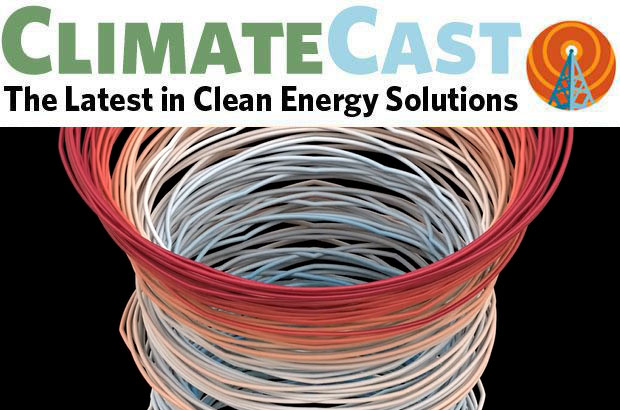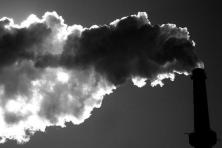Polluters pay! WA's new cap-and-invest gold standard
This week, Washington reached a significant milestone in the state’s push to reduce emissions: Tuesday was the first allowance auction as part of the Climate Commitment Act cap-and-invest program, where Washington’s biggest polluters lined up to buy permits to cover their annual emissions. The funding anticipated from these auctions (offered quarterly) will yield game-changing investments in clean energy, air quality improvements, and community-based solutions; Environmental Defense Fund climate official Pam Kiely called Washington’s program the “gold standard” in terms of incorporating environmental justice considerations.
After California, Washington is only the second U.S. state to enact a comprehensive cap-and-invest policy. It’s an exciting moment with Climate Solutions WA Director Kelly Hall quoted in the Washington Post saying, “The Washington legislature has never had the opportunity to invest this amount of money in climate and clean energy. So this is a really exciting opportunity.”
While most of the media coverage focused on the happening of the allowance auction itself, it’s also worth highlighting aspects of the policy that are unique and groundbreaking: centering environmental justice in the policy and program implementation. (Learn more on the CS blog.) The CCA includes an air quality monitoring program to help reduce air pollution in overburdened communities and requires that at least 35% of the revenue from the CCA goes to overburdened communities. The CCA will undoubtedly change how Washington businesses operate and is adding momentum for similar statewide action.
War, energy costs, and cynical oil companies
Before Russia’s brutal invasion of Ukraine began a year ago, major European nations had at least started transitioning to clean energy. But fossil fuel—much of it imported from Russia—remained the most significant energy source. Once the war began, methane gas prices shot up as supply lines shrank; some regions turned to coal—a much dirtier fossil fuel—to replace lost gas capacity. It seemed like the clean energy transition would suffer significant setbacks.
But that’s not what happened, Rebecca Leber explains in Vox: “By the end of 2022, wind and solar combined overtook natural gas in electricity generation. The latest data on Europe’s renewable transition tells a remarkably upbeat story about the hard things countries can accomplish on climate change with enough political will.” The Russian war kicked the transition into high gear as European Union nations increased investments in renewable energy. Solar power deployments rose a dramatic 47% over the previous year. With the EU now on course to quickly meet emissions targets set for 2030, many are calling for more ambitious targets.
US fossil fuel companies, on the other hand, have spent the past year trying to push European energy in the other direction by locking in long-term agreements to supply the continent with American liquified natural gas (LNG). While the short-term energy crisis precipitated the rush of new or expanded contracts, many won’t start delivering gas until 2026—and will slow the energy transition by locking in fossil fuel capacity for decades. Moreover, skyrocketing prices and rising exports produced a colossal bonanza for US fossil fuel producers but created misery for many US consumers forced to pay more for fuel. This volatility adds to a strong argument to follow Europe’s example and accelerate the transition to clean energy.
Garbage haulers’ commitment to sustainability called into question
Some climate advocates are calling foul on a Seattle garbage hauler’s clean energy claims. Waste Management trucks bearing the slogan “Powered by Renewable Natural Gas” are a common sight around town, but a report from the group GasLeaks questions whether the trucks are actually fueled by clean energy. The nationwide company acknowledges that its gas comes from conventional gas pipelines, supplied primarily with climate-wrecking fracked gas, but explains that it is investing in renewable gas (RNG) elsewhere in the country. In addition, GasLeaks notes that gas provider Puget Sound Energy also invests in RNG, allowing customers like the Port of Seattle the option to pay a little more for the company to add some renewable gas to their overall supply. Climate advocates from 350 Seattle describe the practice as greenwashing, saying, "the climate crisis demands that we stop the build-out of fracked gas infrastructure in all its forms.”
Transition underway
Zero-carbon power sources now account for a record 41% of all electricity in the US, according to the Sustainable Energy in America 2023 Factbook. Globally, according to the International Energy Agency, solar is projected to surpass all other sources of electricity by 2027, including hydropower, coal, and gas. The shift to renewables is good news for the climate and is broadly popular—a new Colorado College survey finds that by large margins, registered voters in eight western states would prefer their power to come entirely from renewable sources, and want their elected officials to prioritize clean air and water over fossil fuel drilling.
Visualizing global heating
This week's header image comes from a new animated data visualization shared by NASA showing average temperature increases from 1880-present. The rate of warming increased visibly in the 1980s and passed the climate safety limit of 1.5 degrees Celsius identified by the International Panel on Climate Change. Indeed, temperatures look set to pass 2 degrees in the very near future. View the animated version here.





